Infrastructure on track as bipartisan Senate coalition grows
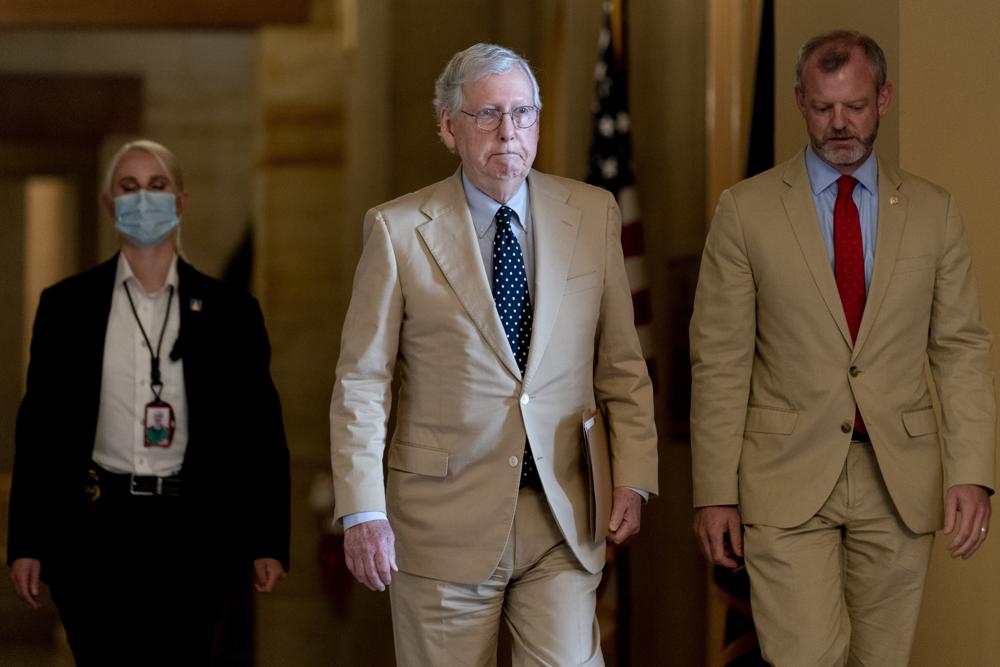
After weeks of fits, starts, and delays, the Senate is on track to give final approval to the $1 trillion bipartisan infrastructure plan, with a growing coalition of Democrats and Republicans prepared to lift the first phase of President Joe Biden’s rebuilding agenda to passage. Final Senate votes are expected Tuesday, and the bill would then go to the House. All told, some 70 senators appear poised to carry the bipartisan package to passage, a potentially robust tally of lawmakers eager to tap the billions in new spending for their states and to show voters back home they can deliver. Senate Majority Leader Chuck Schumer said it’s “the first time the Senate has come together around such a package in decades.” The often elusive political center is holding steady, a rare partnership with Biden’s White House. On the left, the Democrats have withstood the complaints of liberals who say the proposal falls short of what’s needed to provide a down payment on one of the president’s top priorities. From the right, the Republicans are largely ignoring the criticism from their most conservative and far-flung voices, including a barrage of name-calling from former President Donald Trump as he tries to derail the package. Together, a sizable number of business, farm, and labor groups back the package, which proposes nearly $550 billion in new spending on what are typically mainstays of federal spending — roads, bridges, broadband internet, water pipes, and other public works systems that cities and states often cannot afford on their own. “This has been a different sort of process,” said Sen. Rob Portman of Ohio, the lead Republican negotiator of the group of 10 senators who drafted the package. Portman, a former White House budget director for George W. Bush, said the investments being made have been talked about for years yet never seem to get done. He said, “We’ll be getting it right for the American people.” The top Democratic negotiator, Sen. Kyrsten Sinema, said she was trying to follow the example of fellow Arizonan John McCain to “reach bipartisan agreements that try to bring the country together.” Still, not all senators are on board, Despite the momentum, action ground to a halt over the weekend when Sen. Bill Hagerty, a Tennessee Republican allied with Trump, refused to speed up the process. Other Republican senators objected to the size, scope, and financing of the package, particularly concerned after the Congressional Budget Office said it would add $256 billion to deficits over the decade. Two Republicans, Sens. Jerry Moran of Kansas and Todd Young of Indiana, had been part of initial negotiations shaping the package but ultimately announced they could not support it. Rather than pressure lawmakers, Senate Republican leader Mitch McConnell of Kentucky has stayed behind the scenes for much of the bipartisan work. He has cast his own votes repeatedly to allow the bill to progress, calling the bill a compromise. Trump called Hagerty, who had been his ambassador to Japan, on Sunday, and the senator argued for taking more time for debate and amendments, in part because he wants to slow the march toward Biden’s second phase, a $3.5 trillion bill that Republicans fully oppose. The outline for the bigger $3.5 trillion package is on deck next in the Senate — a more liberal undertaking of child care, elder care, and other programs that is much more partisan and expected to draw only Democratic support. That debate is expected to extend into the fall. Unlike Biden’s bigger $3.5 trillion package, which would be paid for by higher tax rates for corporations and the wealthy, the bipartisan package is to be funded by repurposing other money and with other spending cuts and revenue streams. The bill’s backers argue that the budget office’s analysis was unable to take into account certain revenue streams — including from future economic growth. Senators have spent the past week processing nearly two dozen amendments to the 2,700-page package, but so far, none has substantially changed its framework. One remaining issue, over tax compliance for cryptocurrency brokers, appeared close to being resolved after senators announced they had worked with the Treasury Department to clarify the intent. But an effort to quickly adopt the cryptocurrency compromise was derailed by senators who wanted their own amendments, including one to add $50 billion for shipbuilding and other defense infrastructure. It’s unclear if any further amendments will be adopted. The House is expected to consider both Biden infrastructure packages when it returns from recess in September. House Speaker Nancy Pelosi has said the two bills will be considered together, but on Monday, a bipartisan group of centrist lawmakers urged her to bring their smaller plan forward quickly, raising concerns about the bigger bill, in a sign of the complicated politics ahead. “This once-in-a-century investment deserves its own consideration,” wrote Reps. Josh Gottheimer, D-N.J., Jared Golden, D-Maine, and others in a letter obtained by The Associated Press. “We cannot afford unnecessary delays.” Republished with the permission of the Associated Press.
Joe Biden meets Republicans on virus aid, but no quick deal
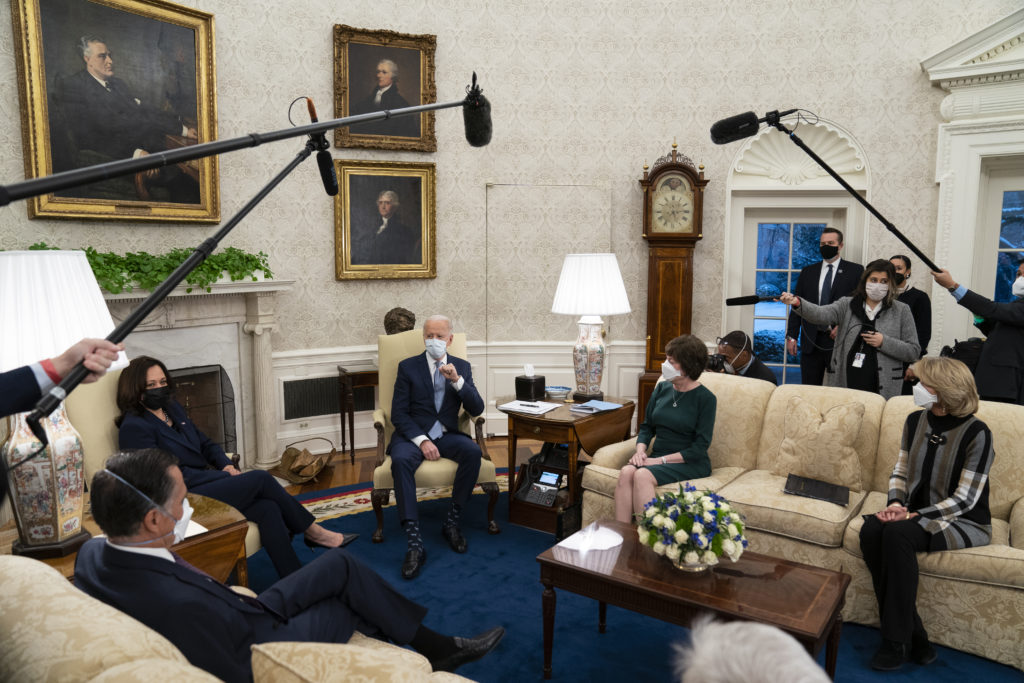
President Joe Biden told Republican senators during a two-hour meeting Monday night he’s unwilling to settle on an insufficient coronavirus aid package after they pitched their slimmed-down $618 billion proposal that’s a fraction of the $1.9 trillion he is seeking. No compromise was reached in the lengthy session, Biden’s first with lawmakers at the White House, and Democrats in Congress pushed ahead with groundwork for approving his COVID relief plan with or without Republican votes. Despite the Republican group’s push for bipartisanship, appealing to Biden’s efforts to unify the country, the president made it clear he won’t delay aid in hopes of winning GOP support. White House Press Secretary Jen Psaki said that while there were areas of agreement, “the president also reiterated his view that Congress must respond boldly and urgently, and noted many areas which the Republican senators’ proposal does not address.” She said, “He will not slow down work on this urgent crisis response, and will not settle for a package that fails to meet the moment.” The two sides are far apart, with the Republican group of 10 senators focused primarily on the health care crisis and smaller $1,000 direct aid to Americans, and Biden leading Democrats toward a more sweeping rescue package, three times the size, to shore up households, local governments, and a partly shuttered economy. On a fast track, the goal is to have COVID relief approved by March, when extra unemployment assistance and other pandemic aid expires, testing the ability of the new administration and Congress to deliver, with political risks for all sides from failure. Republican Sen. Susan Collins of Maine called the meeting a “frank and very useful” conversation, noting that the president also filled in some details on his proposal. “All of us are concerned about struggling families, teetering small businesses, and an overwhelmed health care system,” said Collins, flanked by other senators outside the White House. Republicans are tapping into bipartisan urgency to improve the nation’s vaccine distribution and vastly expand virus testing with $160 billion in aid. That is similar to what Biden has proposed. But from there, the two plans drastically diverge. The GOP’s $1,000 direct payments would go to fewer households than the $1,400 Biden has proposed, and the Republicans offer only a fraction of what he wants to reopen schools. They also would give nothing to states, money that Democrats argue is just as important, with $350 billion in Biden’s plan to keep police, fire, and other workers on the job. Gone are Democratic priorities such as a gradual lifting of the federal minimum wage to $15 an hour. Wary Democrats pushed ahead at the Capitol, unwilling to take too much time in courting GOP support that may not materialize or in delivering too meager a package that they believe doesn’t address the scope of the nation’s health crisis and economic problems. Senate Majority Leader Chuck Schumer warned that history is filled with “the costs of small thinking.” House and Senate Democrats released a separate budget resolution Monday a step toward approving Biden’s package with a “budget reconciliation” process that wouldn’t depend on Republican support for passage. “The cost of inaction is high and growing, and the time for decisive action is now,” Schumer and Speaker Nancy Pelosi said in a statement. The accelerating talks came as the Congressional Budget Office delivered mixed economic forecasts Monday with robust growth expected at a 4.5% annual rate but employment rates not to return to pre-pandemic levels for several years. The overture from the coalition of 10 GOP senators, mostly centrists, was an attempt to show that at least some in the Republican ranks want to work with Biden’s new administration, rather than simply operating as the opposition in the minority in Congress. But in echoes of the 2009 financial crisis, Democrats warn against too small a package as they believe happened during the Obama administration’s attempt to pull the nation toward recovery. Psaki said earlier Monday there is “obviously a big gap” between the $1.9 trillion package Biden has proposed and the $618 billion counteroffer. An invitation to the GOP senators to meet with Biden and Vice President Kamala Harris at the White House came hours after the lawmakers sent Biden a letter on Sunday urging him to negotiate rather than try to ram through his relief package solely on Democratic votes. “We share many of your priorities,” the senators wrote releasing their plan. The cornerstone of the GOP plan is $160 billion for the health care response — vaccine distribution, a “massive expansion” of testing, protective gear, and funds for rural hospitals, according to a draft. It includes $20 billion to reopen schools compared to $170 billion in Biden’s plan. The Republicans offer $40 billion for Paycheck Protection Program business aid. Under the GOP proposal, $1,000 direct payments would go to individuals earning up to $40,000 a year, or $80,000 for couples. The proposal would begin to phase out the benefit after that, with no payments for individuals earning more than $50,000, or $100,000 for couples. That’s less than Biden’s proposal of $1,400 direct payments at higher income levels, up to $300,000 for some households. The meeting, though private, was Biden’s most public involvement in the negotiations. Winning the support of 10 Republicans would be significant for Biden, potentially giving him the votes needed in the 50-50 Senate where Harris is the tie-breaker. The more liberal wing of his party wants to push the relief package through the budget reconciliation process, which would allow the bill to pass with a 51-vote majority in the Senate, rather than the 60 votes typically needed to advance. The White House remains committed to exploring avenues for bipartisanship even as it prepares for Democrats to move alone on a COVID relief bill, according to a senior administration official granted anonymity to discuss the private thinking. At the same time, the White House may be willing to adjust its ask, perhaps shifting some less virus-oriented aspects into a package that is set to go next before Congress, the
GOP lawmakers urge Joe Biden to meet with them on virus relief
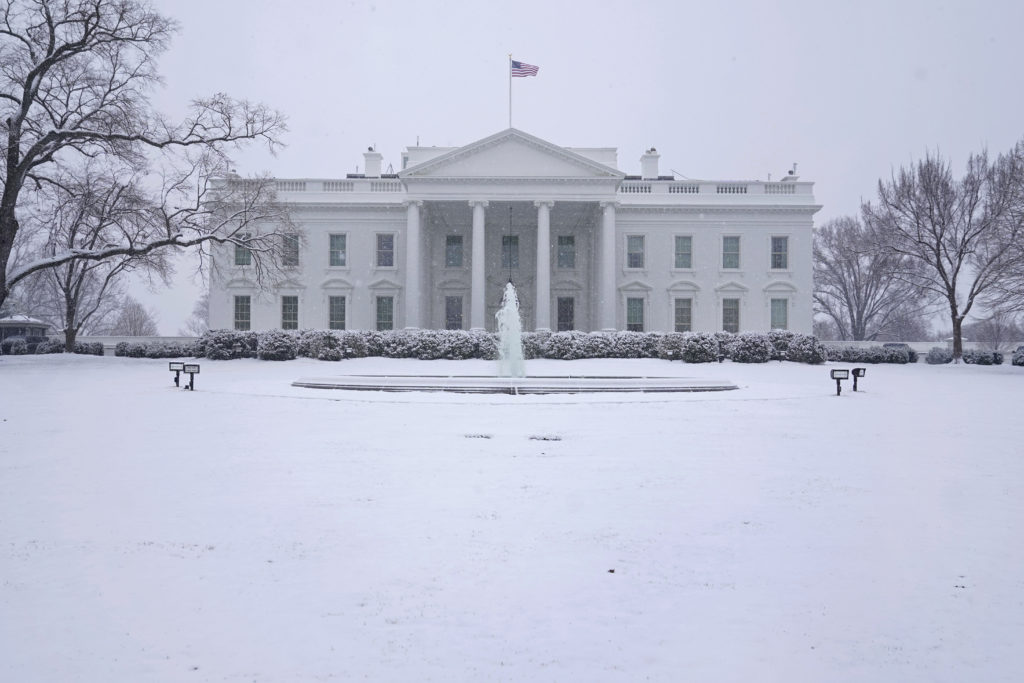
Ten Republican senators on Sunday proposed spending about one-third of what President Joe Biden is seeking in coronavirus aid and urged him to negotiate rather than try to ram through his $1.9 trillion package solely on Democratic votes. In challenging Biden to fulfill his pledge of unity, the group said in a letter that their counterproposal will include $160 billion for vaccines, testing, treatment, and personal protective equipment and will call for more targeted relief than Biden’s plan to issue $1,400 stimulus checks for most Americans. Winning the support of 10 Republicans would be significant for Biden in the 50-50 Senate where Vice President Kamala Harris is the tie-breaker. If all Democrats were to back an eventual compromise bill, the legislation would reach the 60-vote threshold necessary to overcome potential blocking efforts and pass under regular Senate procedures. “In the spirit of bipartisanship and unity, we have developed a COVID-19 relief framework that builds on prior COVID assistance laws, all of which passed with bipartisan support,” the Republican senators wrote. “Our proposal reflects many of your stated priorities, and with your support, we believe that this plan could be approved quickly by Congress with bipartisan support.” The plea for Biden to give bipartisan negotiations more time comes as the president has shown signs of impatience as the more liberal wing of his party considers passing the relief package through a process known as budget reconciliation. That would allow the bill to advance with only the backing of his Democratic majority. The Republicans did not provide many details of their proposal. One of the signatories, Louisiana Sen. Bill Cassidy, said that it would cost about $600 billion. “If you can’t find bipartisan compromise on COVID-19, I don’t know where you can find it,” said Ohio Sen. Rob Portman, who also signed the letter. The other GOP senators are Susan Collins of Maine, Lisa Murkowski of Alaska, Mitt Romney of Utah, Shelley Moore Capito of West Virginia, Todd Young of Indiana, Jerry Moran of Kansas, Mike Rounds of South Dakota, and Thom Tillis of North Carolina. Brian Deese, the top White House economic adviser who is leading the administration’s outreach to Congress, said administration officials were reviewing the letter. He did not immediately commit to a Biden meeting with the lawmakers. But Cedric Richmond, a senior Biden adviser, said the president “is very willing to meet with anyone to advance the agenda.” When asked about the senators’ plan, Richmond said, “this is about seriousness of purpose.” Deese indicated the White House could be open to negotiating on further limiting who would receive stimulus checks. Portman suggested the checks should go to individuals who make no more than $50,000 per year and families capped at $100,000 per year. Under the Biden plan, families with incomes up to $300,000 could receive some stimulus money. “That is certainly a place that we’re willing to sit down and think about, are there ways to make the entire package more effective?” Deese said. As a candidate, Biden predicted his decades in the Senate and his eight years as Barack Obama’s vice president gave him credibility as a deal-maker and would help him bring Republicans and Democrats to consensus on the most important matters facing the country. But less than two weeks into his presidency, Biden showed frustration with the pace of negotiations at a time when the economy exhibited further evidence of wear from the pandemic. Last week, 847,000 Americans applied for unemployment benefits, a sign that layoffs remain high as the coronavirus pandemic continues to rage. “I support passing COVID relief with support from Republicans if we can get it. But the COVID relief has to pass — no ifs, ands or buts,” Biden said on Friday. In the letter, the Republican lawmakers reminded Biden that in his inaugural address, he proclaimed that the challenges facing the nation require “the most elusive of things in a democracy: Unity.” Cassidy separately criticized the current Biden plan as “chock-full of handouts and payoffs to Democratic constituency groups.” “You want the patina of bipartisanship … so that’s not unity,” Cassidy said. Jared Bernstein, a member of the White House Council of Economic Advisers, said Biden remains willing to negotiate but that officials needed to see more details from Republicans. At the same time, Bernstein pressed the administration’s argument that doing too little to stimulate the economy could have enormous impact on the economy in the near- and long-term. “Look, the American people really couldn’t care less about budget process, whether it’s regular order, bipartisanship, whether it’s filibuster, whether it’s reconciliation,” Bernstein said. “They need relief, and they need it now.” Portman and Deese were on CNN’s “State of the Union,” and Deese also was interviewed on NBC’s “Meet the Press.” Cassidy and Bernstein appeared on ”Fox News Sunday” and Richmond was on CBS’ “Face the Nation.” Republished with the permission of the Associated Press.
Senate moves to limit Donald Trump on military force against Iran
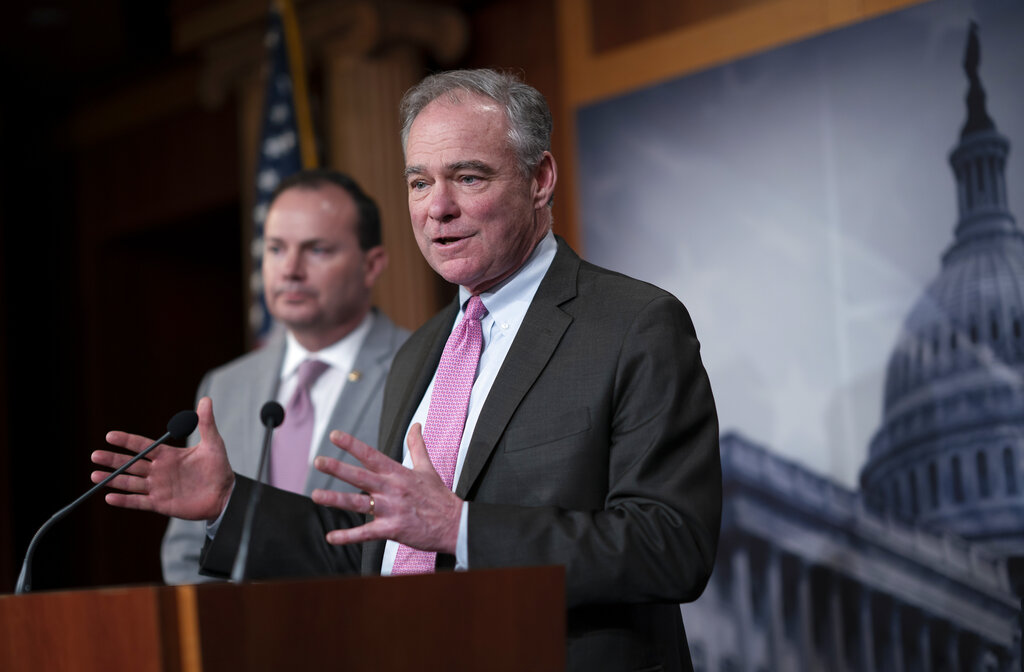
The rebuke was the Senate’s first major vote since acquitting Trump on impeachment charges last week.
No escape: Senators to be quiet, unplugged for Donald Trump impeachment trial

Senators will begin each day with a proclamation: “All persons are commanded to keep silence, on pain of imprisonment.”
Richard Shelby, U.S. senators: Moscow must not meddle in the 2018 election
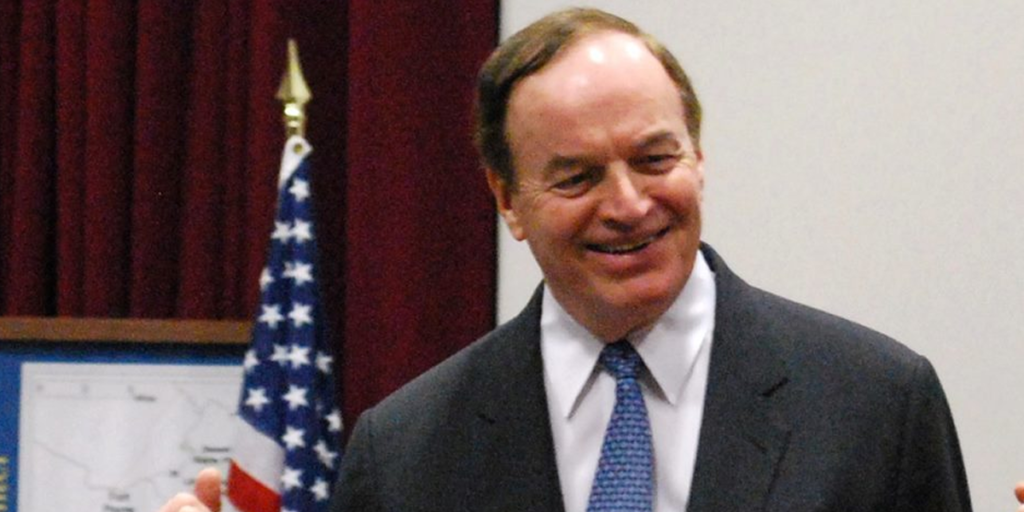
Visiting U.S. senators on Wednesday urged Russia not to meddle in the U.S. midterm election in November if it wants to improve strained bilateral ties. The senators were in Russia as part of a congressional visit taking place two weeks ahead of a summit between the nations’ presidents in Helsinki. Sen. John Thune, a South Dakota Republican, called for a “change in behavior” on the part of Moscow. “The best way to demonstrate this as we head into the 2018 election is to show the American people and our congress and our administration that the Russians have no intention of messing or playing with the American election,” Thune told The Associated Press in an interview. Richard Shelby, a senator from Alabama who heads the delegation, brought up the topic of alleged Russian interference in the 2016 U.S. presidential election. “I think it’s a given in the United States, in both parties, that Russia tried to meddle and probably did meddle in the election,” Shelby told the AP. Senator Jerry Moran from Kansas said all Russian officials they spoke to denied that. “It was simply a denial on their part that it occurred.” Shelby added, however, that despite deep disagreements, the meeting was a useful step in improving ties. “We also told them that even though our relationship is strained, it would be better for the world for us to be competitors, always, rather than adversaries. But we’ll have to see what happens.” Russia-U.S. ties have been bitterly strained by the fighting in Ukraine, the Syrian war and allegations of election meddling. Republished with the permission of the Associated Press.


